XbTlngpeUZkpL3OVPHcyQke7oyhmbbEh2dLQmDRENXBFj6T5WvLRcuzPzWKsAcWVBDEcS0jROKaqEIRvQ6eVLokBBKFGAOBHKLmp9
r17vezEuQIn59wGRY8RXXXF0wQNAT9rvIbznZZ7D0jdv9AmVle46YAMlyYdD061s1n5MfZ5oYy7vWfA0SXrn0bXlSNy7j2zTHMkG6
b1zVTfB4dyxtCxPGlQZhcd0xFOWz8SOVP3F7upj2O7TAcYfkgoehYLNcSd4UvJAP7C2PjNL6ELILe0uBjITIOw2NpgWAii8Qcx2wT
hJSomSW0IUDA2qAUaoFeCZu0gDjOkhRUUgWCUnXN8PCDsQEofX9ZA6a5M3DCrWNFQyT0xRjnf7IdQ0dzTaqLbbujo2LtQZTWZxt3o
w1rX5Myfdv768YpwX7n2l61XZ5sAliWoJ7zNyNU7d4t1ELjVTupIAOmEbpVgAdEVSAuWxFwrF704aSvCWbrltrKjfgam5Kp7oSaqk
YUaIHw64TDN5JhBwIq4CBSWfd1cRunRGm61CQQEQW9HeTppCX5dslotVlXuxcA11oC6CKoFyejknvN8tpBa7ana86Bn42NTlgQXcs
NyICzGcpPdWpIUWQf21Hp8v88genJGVU3DPT8YGFwf15gK0MKO7OVLqvYrLjczW1bPVcDYyfVzXMziNlQkGuWdcQzTukJs1UL0OZ8
PGTlCnXBlYRg0eHKrWQ81KMMXd2TUYeLy254q3huohlqOfgEC4ANCKnTv4HVHiC7DT4Hbphenu72yL8KX6gLdGVmKSQJEux6m3k0T
8pxcZbqEF7tuA0L8vqqgm2fpLuSQIcbtM3QdUqJ0sJ3nhhEkYgOoD2EFJuuiwMfBgiNdAZY4UXc48MZW0DVNMOtGEC76HoWiDOgML
Aae22cLUVvMVb93gQd6deYnTdYO7ViEH8wjvCtU3RQpcIa9CchYBhZ4ztFdTVDUSre6s51nkA7SiiTzAcyLlljV2ixRGraRR5PHMf
2k2wSqhowKbij31mOh33Fe5M135CCWu6uGJUprciYHb5yYT34AMls0LU23grG5MdiQbuGiAmeDjnpHjuutQetX5QkHsFmLOMDFtpm
DdT2P8QjaAf9jO2MruSA4QPTcDJPuan7aKYdJtdnxHgiap3FzQDkRNPYByqNHpwi2pqqw1oXQYa0igzQMBWzbMWZOKM4wdZ3FVLnc
PqQuJbMoq0KUFnYSXjRI9po4AjNwfyctmAiCAWWLi8k6OIuT8QlBjgmveJ5UaPwahLj16kKdVcmwioBzq5734JObRwY7vNzPKbXN4
rcf3WaUoXWghvl68iPcXtqdQsZTG2r2Uddzi07iiamhKv69IQnh4WhAoNrCAYoNTf8b7e2dE3XVhmBeLgFzypjPgLsEkU9twwCGql
tCk9Rxos1Gl24XmXzUtMZIiG7XZz1w5EmHMk9nwblGxy97obbt1Y5ZCTtOLOXeiVlFZeIP1cr2KAmtiFVSDmtjhvMqWyYGoR1w9E4
ErRszvzeHqERiyi32flCMHA77R5QOJOR1X64sx9OQOAqPmeAkUz5kqGE1Bp9aHDgpnbM0apEMRy1zehVoCZJNI5vOeB8fXHTHS4bE
XWD0YHoW3os9zOQYfbJBUKUqewm9gpHFdsPj87VCGH6BKJ5ZR14DAIUFLEXN2TQPWTE3dhleuofWTg72UpgqrmiA4AOC99vxhHHZA
aEXV4lHyhW9ODsvGe6fXFbuHdG8ufHFbJhbsVkWAaypANoKIdCa8pt0RD2vImkpmJkm1JBmtUCGe1yyvL4LARWUP15RfpntUp07WU
xiT7VXtaiYFrPG5GexbusRd1Nn49moTieJ1ZFmEDCxg4KCRipggXTwnsSFgZwIdNet3wlZZwsLYhABwG3wuKclhNRtIzsMiCBcTPm
a0Fq0tVpjnQS4XkiNAfxXUGENHFQPtTf7qty5JddtV8Nqay85L17qt0TnF0bmEv8geK09ySCPRo2gE9otdWhHATUMiiYNHNtJLAiE
2CYGwv8gVkxsZV6dWGfrgx9j0vMK6CjGryozpAXrorB8lmT0goMALy1u2LaPomowv3iiS2IhWrmrieKSg5fmEcSOsNhLVrlrQAfEN
Kyywpg6qmdJKELUA4O6RDaXyusnddrIkh4hv1JXbTT9mK20iYccA8FRt7yWX2KJrBASBK86VMRVUW88bKKSyIDkzvuv9rl3LptGke
rylWHrZ7wYUNqLOW8UtcvAjS2dkX0O9eZvXTRM5ONe4hlfycON60vIxOjULUHqKSDW75j8C0W4y9ffOBgIkC5tebAYTDLbqNGp1pz
qPRPYg6em7DpDkHPIxfEQJSfoKjX7HtKnXIb7zuDMOJHjw6oyWCGrmOxaTvaHxorcY4PyqYcbB3QN5MjQoWlRsMDN5CI3dcfCrWcE
FTAEjzVEwiMOaRiiPquXeqSwjQ3vy5WHmMuP0dRr0QZKU4AR0yDE3je1IK54HmYnigNIMsCyUAl8xlQ8LtTQpMkUAje8kygEFAKwi
Xxc5nek4eYafP0zGkbmCzTsVuD3VHdArFjrJLNYVKgnfLW2ckZwGiaoy4S6NhWw33wRVgnmgEiiKFtiefCS4AImriUme6PbUiDjFm
XboxngpeUZkpL3OVPHcyQke7oyhmbbEh2dLQmDRENXBFj6T5WvLRcuzPzWKscWVBDEcS0jROKaqEIRvQ6eVLAokBBKFGAOBHKLmp9
ErPIisLYgRJ8IR2u7QOMxGNi6k6hs9tOWth3OM6TC0rOTQfvpz6IIzVTXBEQomQl1kWVcPwTqv2gdmTa6dC9x2PaS4qmqS5txyXer
SnYSsxGG6oebPBiGg5X0tMEsypWRYNu7bxfBvixZfRpFCBKnHSwtYb0vecLKHnvCC1OJsUOy5Skrf5XDzVYMdcCMxBhOxsv3iB5jR
XWD0YHoW3os9zOQYfbJBUKUqewm9gpHFdsPjibNYXDtFnO59Mur84fTkoy0IiYCdTE3dhleuofWTg72UpgqrmiAL4AOC99vxhHHZA
QOlal5GQaui90qp0Xm63jXnKGXbnDaeVuWh6SeNbh6Z52AL8wRmNrLKV9hlUYrPNK8QEmYDUciLoTkill6CPCbvtE5zdlRo1iQPS9
r17vezEuQIn59wGRY8RXXXF0wQNAT9rvIbznZZ7D0jdv9AmVle46YAMlyYdD01s1n5MfZ5oYy7vWfA0SXrn0bXlSNAy7j2zTHMkG6
1zVTfB4dyxtCxPGlQZhcd0xFOWz8SOVP3F7upj2O7TAcYfkgoehYLNcSd4UvJP7C2PjNL6ELILe0uBjITIOw2NpgWAWii8Qcx2wTA
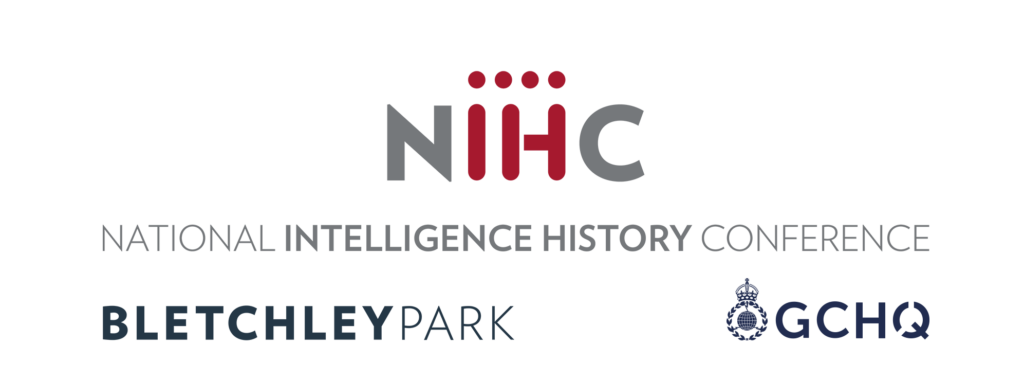
Programme is subject to change. We will endeavour to keep this web page as up-to-date as possible.
Each day’s schedule and programme will be available at the venue during the conference.

9.00: Registration
9.30-11.00: Session 3
11.00-11.30: Refreshments
11.30-13.00: Session 4
13.00-14.00: Lunch
14.00-15.30: Session 5
15.30-16.00: Refreshments
16.00-17.30: Session 6
17.30-17.45: Comfort Break
17.45-18.45: Plenary Keynote
The Conference Dinner starts at 19.30. Details have been shared with those attending.
Details of the speakers can be found beneath the overview
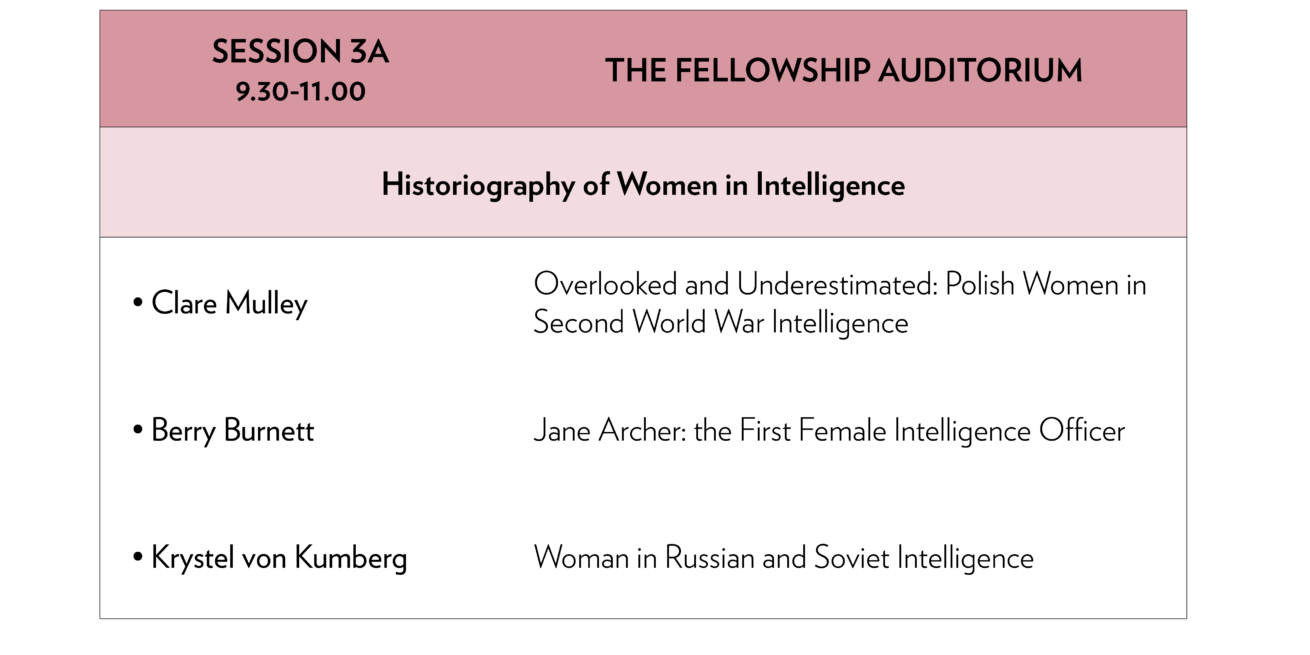
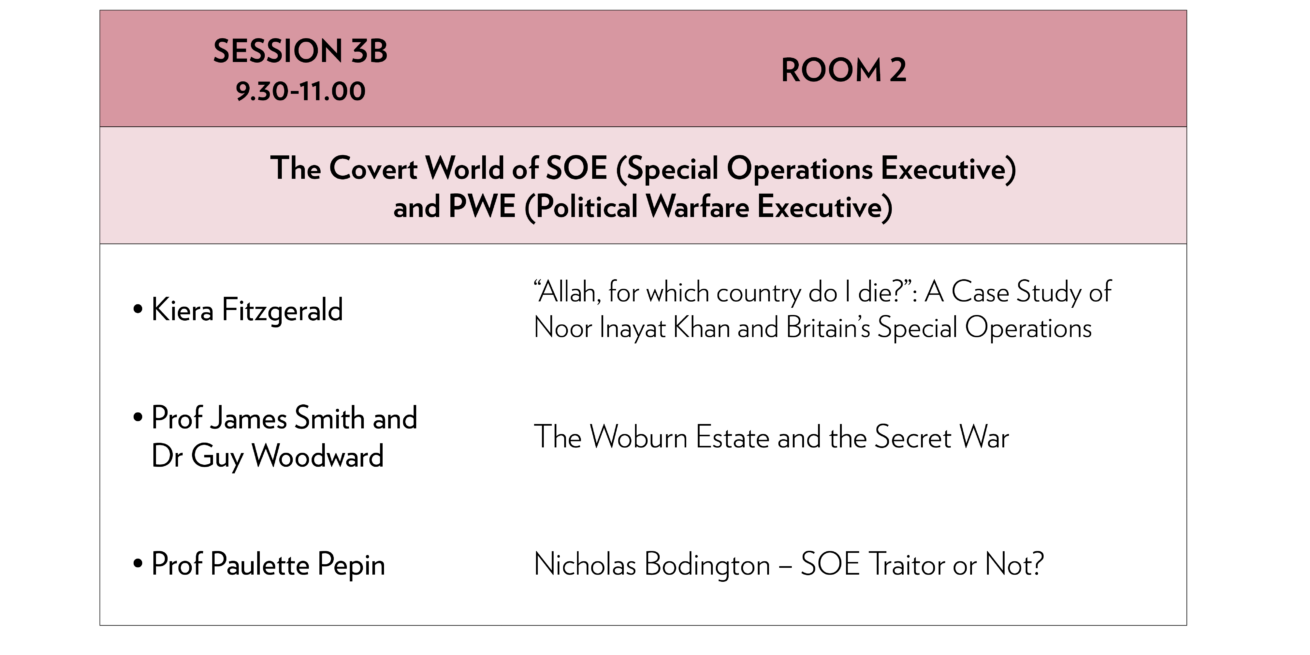
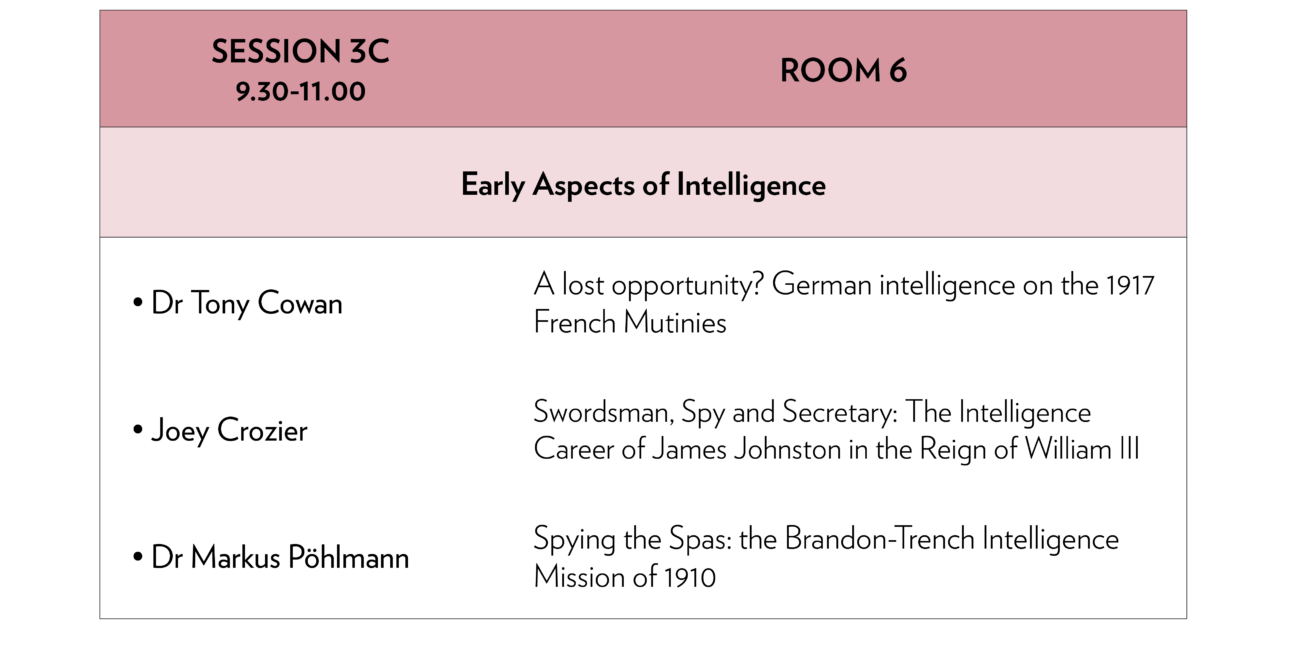
The Fellowship Auditorium
Room 2
Room 6
Details of the speakers can be found beneath the overview
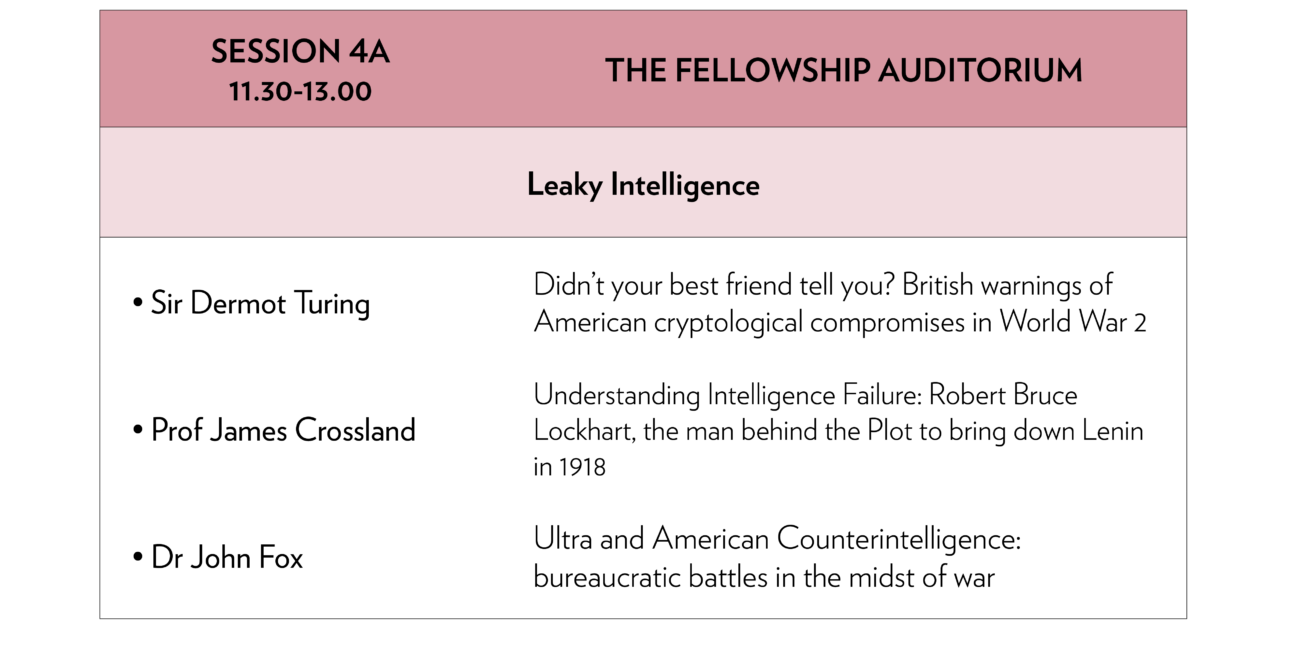
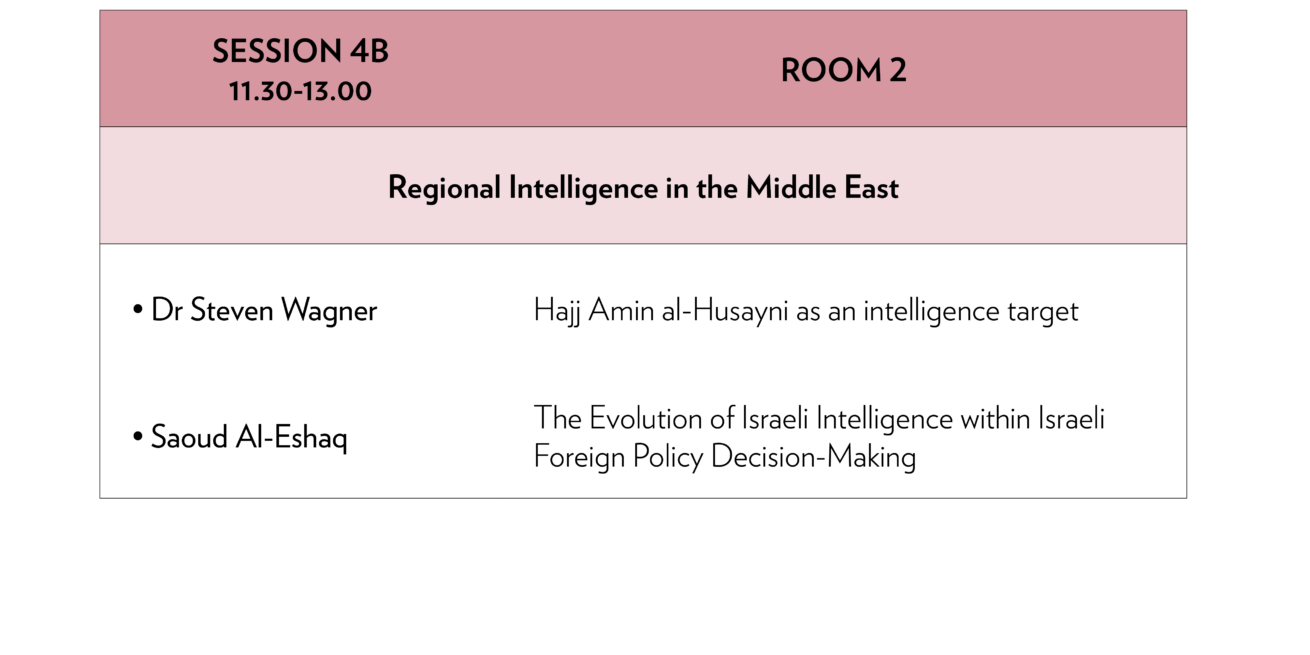
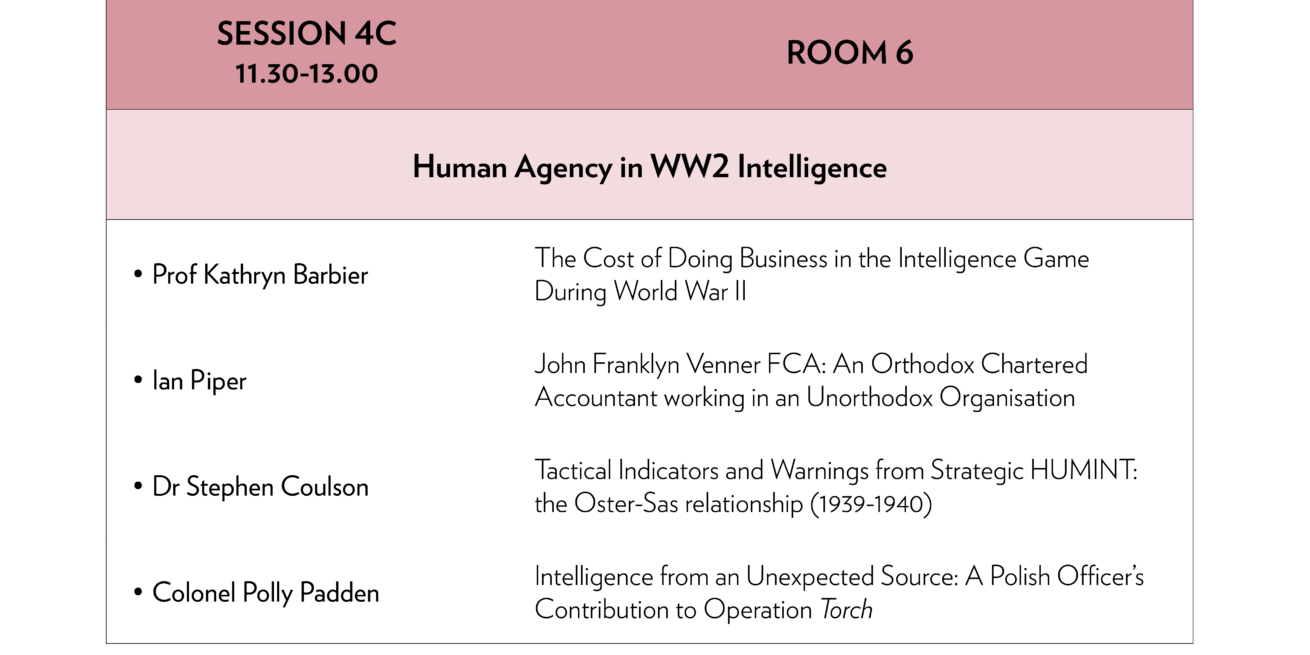
The Fellowship Auditorium
Room 2
Room 6
Details of the speakers can be found beneath the overview
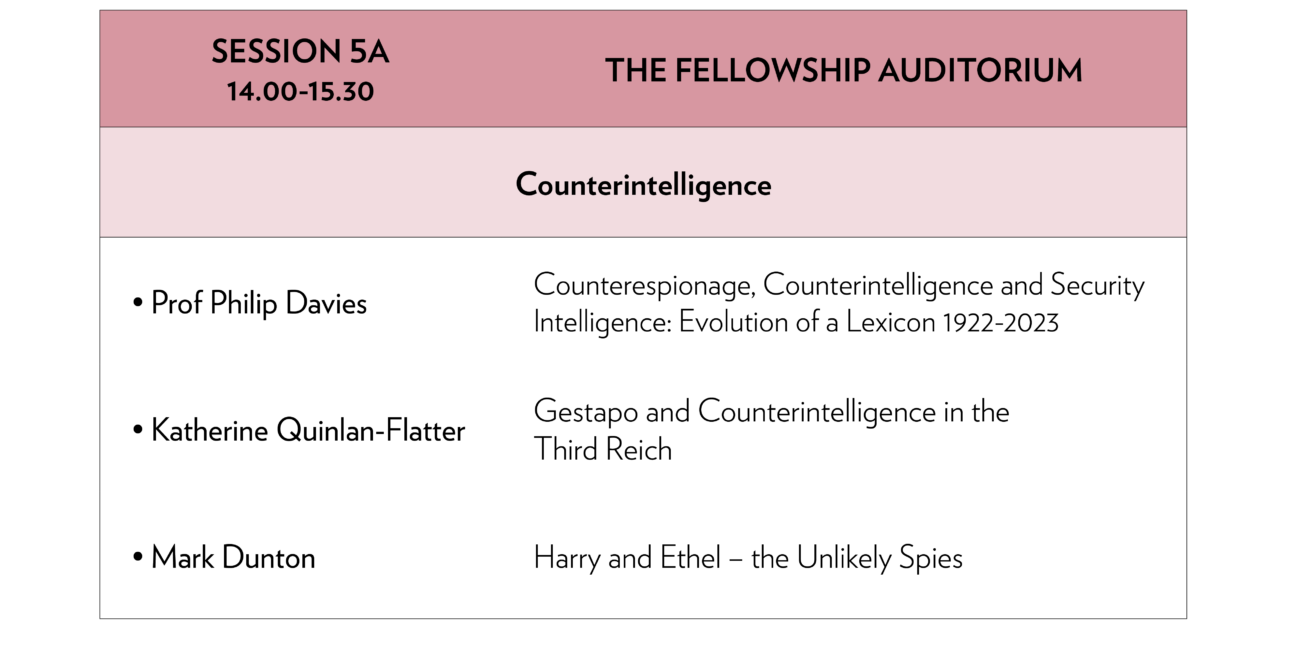
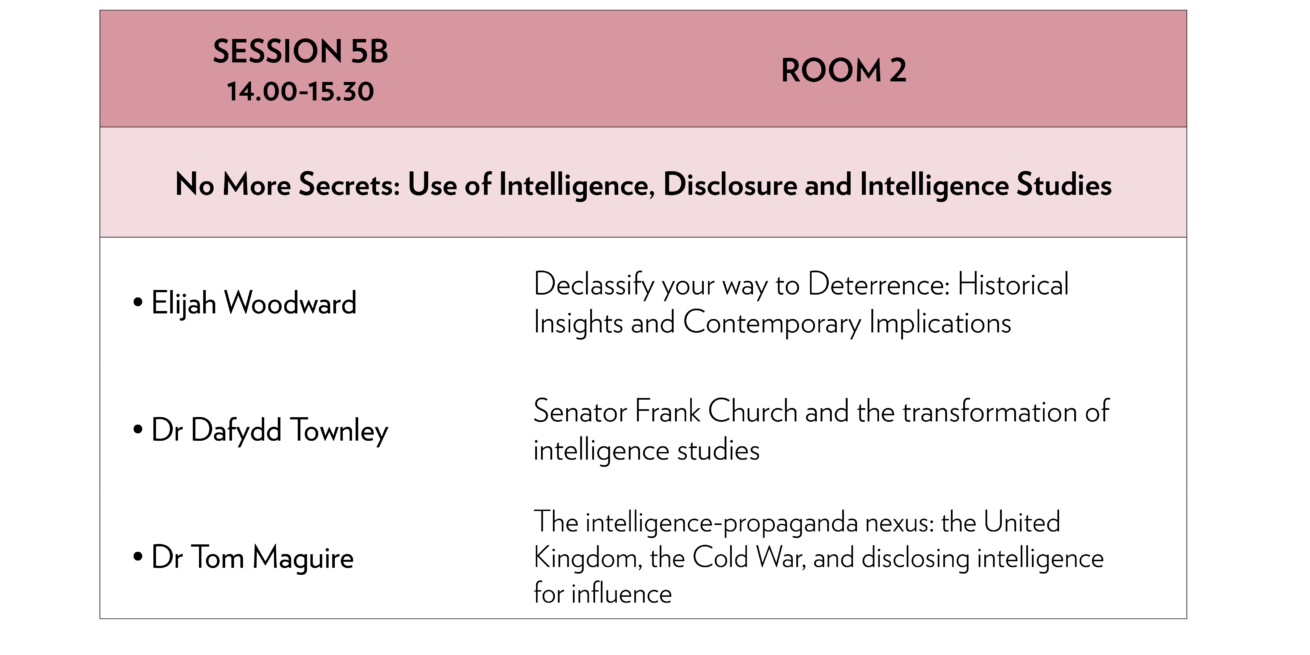
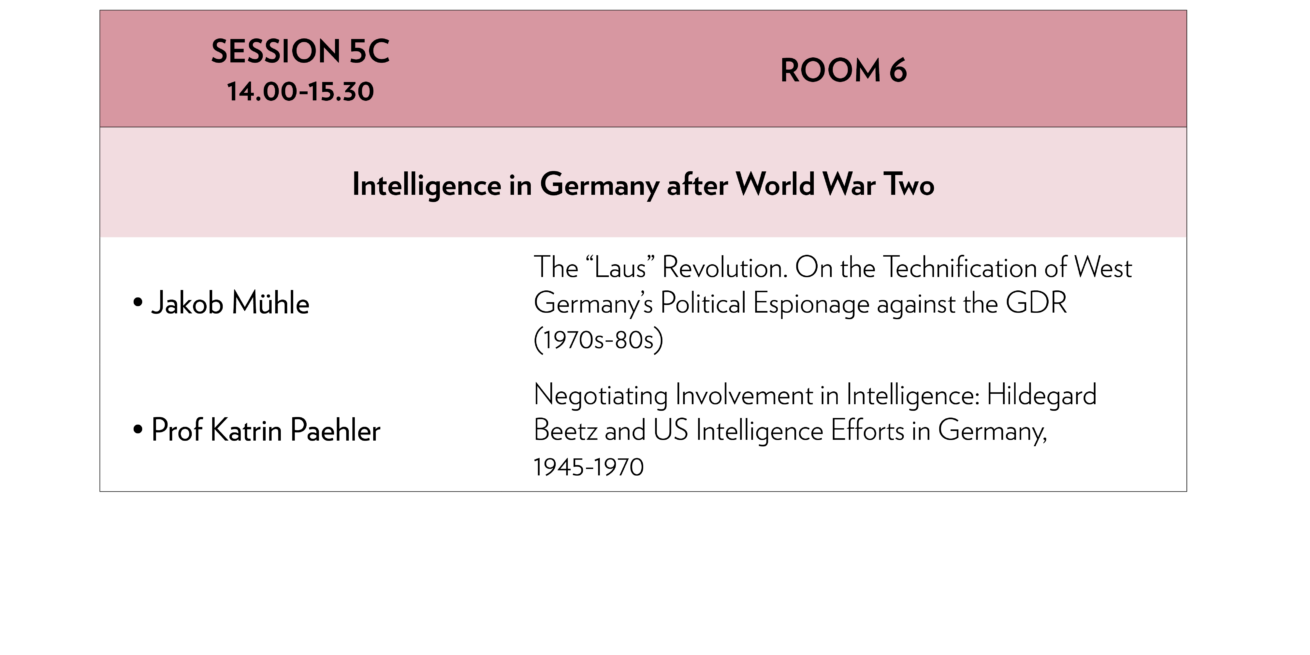
The Fellowship Auditorium
Room 2
Room 6
Details of the speakers can be found beneath the overview
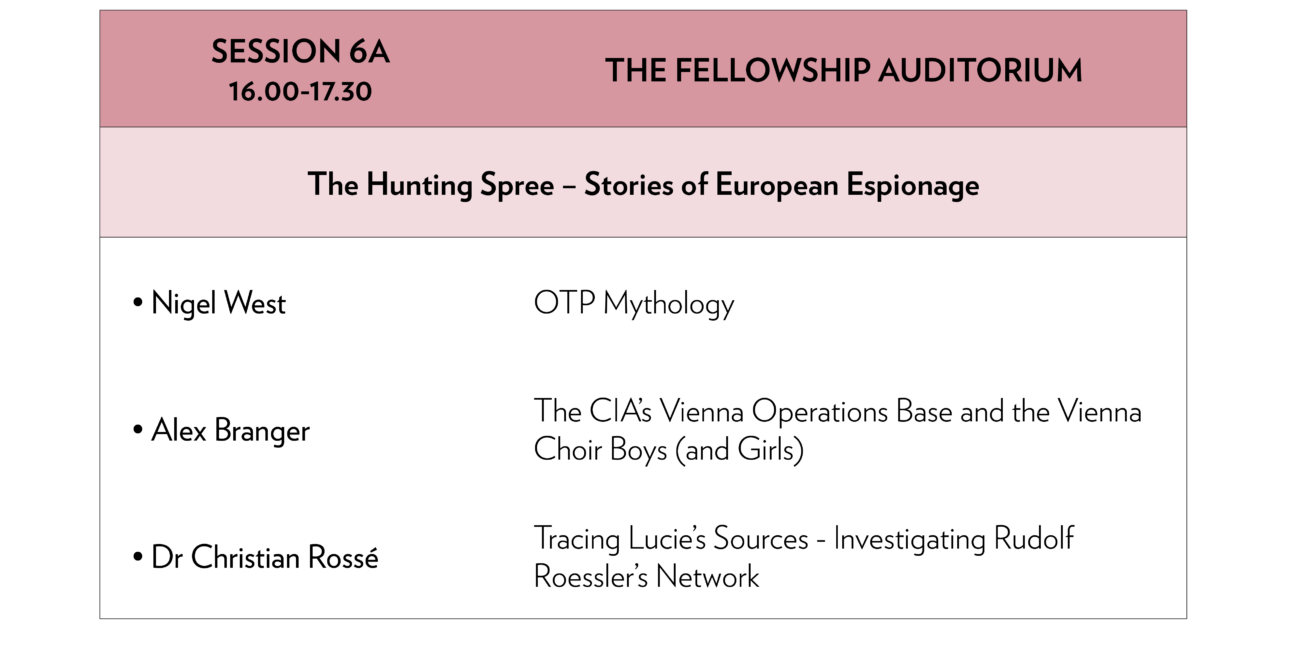
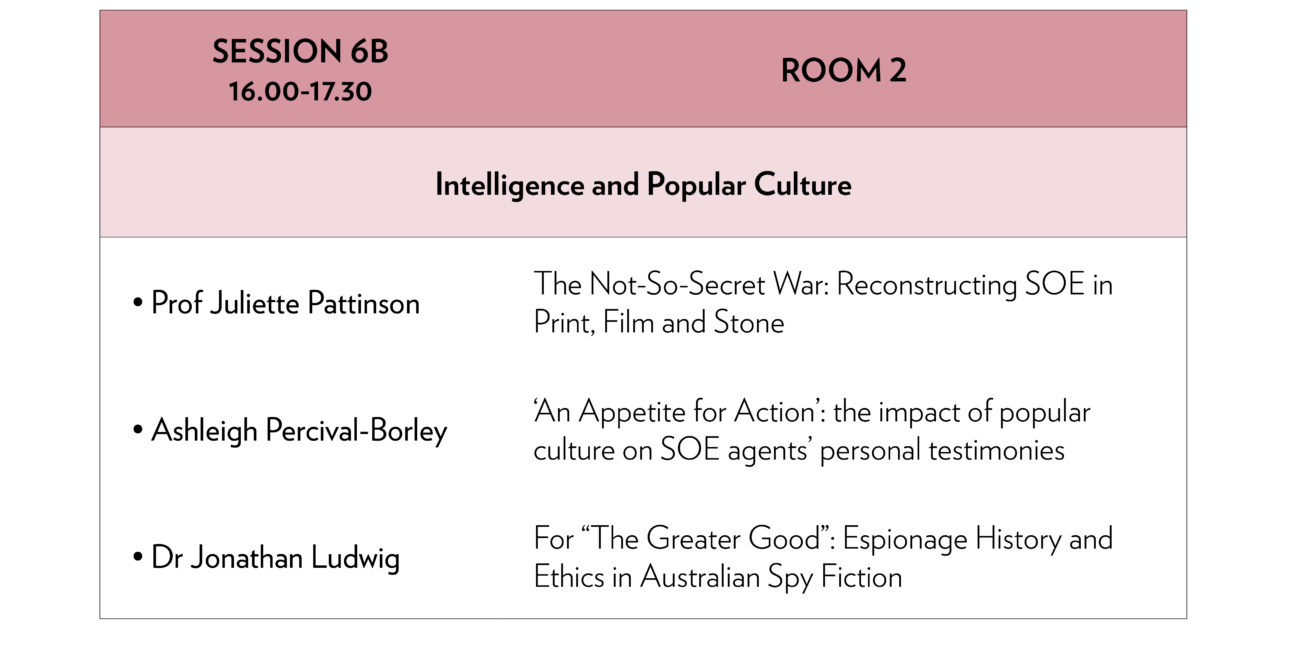
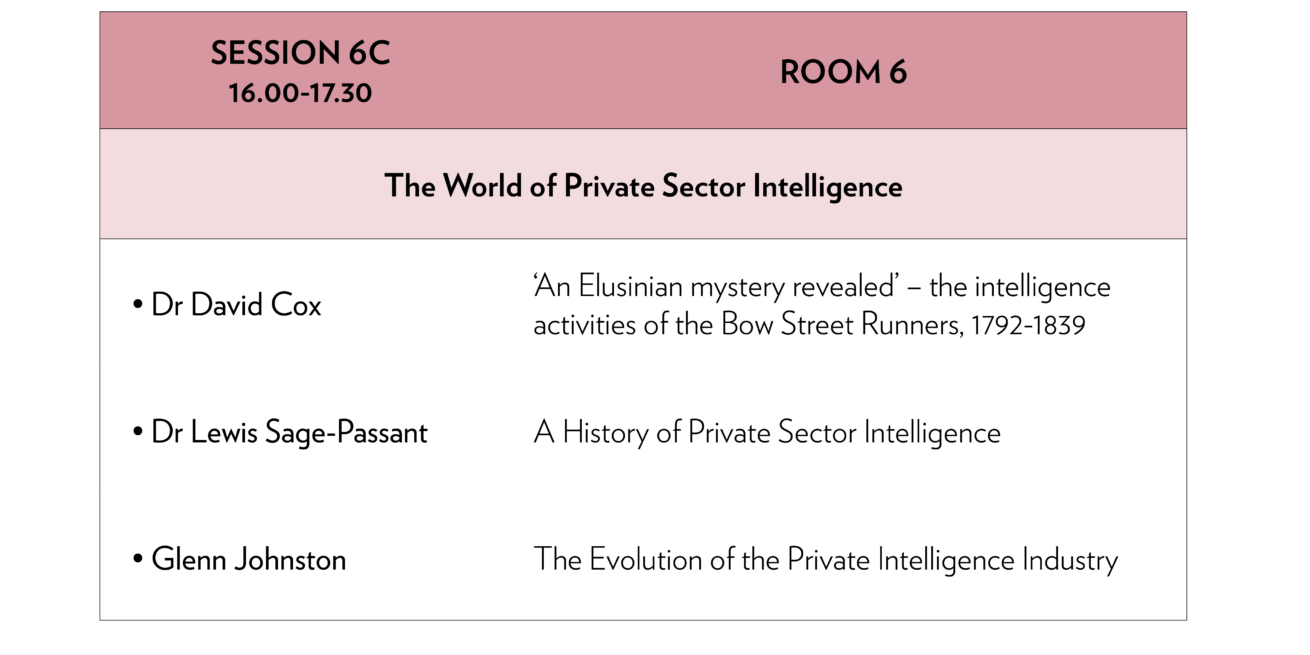
The Fellowship Auditorium
Room 2
Room 6
The Fellowship Auditorium
Prof Richard Aldrich
Spies, Secret Intelligence and British Prime Ministers
Richard J. Aldrich is a Professor of International Security in the Department of Politics and International Studies, University of Warwick, and is the author of several books including The Hidden Hand (2001) The Black Door (2016) and GCHQ (2nd edition 2019). His most recent book is Crown, Cloak and Dagger (2023) co-written with Rory Cormac. He is an ISA Distinguished Scholar and has led the AHRC Landscapes of Secrecy project on the CIA and the Contested Record of American Foreign Policy. More recently, he completed a Leverhulme Major Research Fellowship on the changing nature of secrecy. He is currently completing a book called Exposure which focuses on the CIA and the American press during the Cold War.